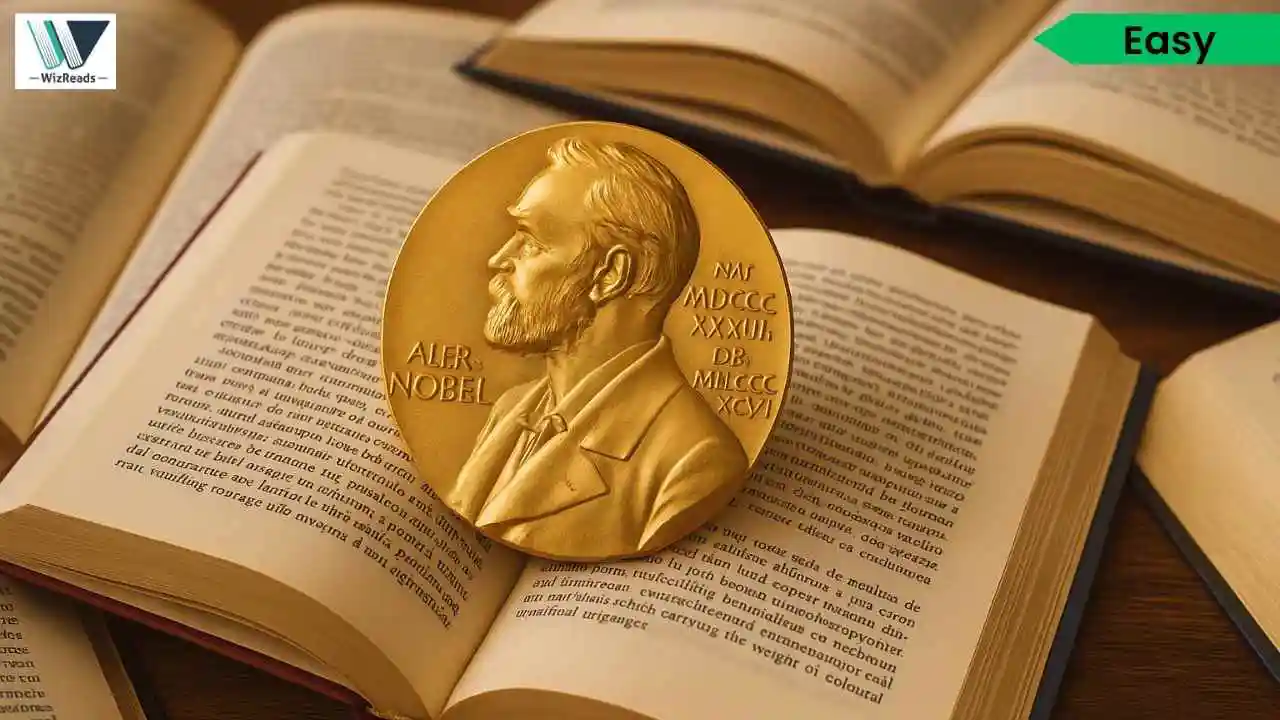
Newsletter Subscribe
Enter your email address below and subscribe to our newsletter

Enter your email address below and subscribe to our newsletter

Can literary recognition truly capture the full scope of an author’s impact, or does it merely reflect institutional preferences at a particular moment in time? How do selection processes balance artistic merit against evolving cultural priorities? These easy GMAT and GRE Reading Comprehension passages explore the intricate mechanisms behind prestigious literary awards and the complex journey from marginalized voice to global recognition.
Read these RC passage(s) in Social Sciences and answer the question(s) that follows. You can choose the GMAT style Reading Passage and the question or the GRE RC variant and answer the GRE-style question. Even better, you could solve both.
Abdulrazak Gurnah’s sustained exploration of colonialism’s enduring effects has led to his recognition as one of contemporary literature’s most insightful voices on displacement and cultural identity. The Tanzanian-born novelist received the 2021 Nobel Prize in Literature, becoming the first Black African writer to receive this honor in thirty-five years. Born in Zanzibar during the final years of British colonial rule, Gurnah experienced firsthand the political upheavals that followed independence, ultimately fleeing to England in the 1960s as a refugee student.
This personal experience of displacement fundamentally shaped Gurnah’s literary perspective and thematic focus. Over four decades, he has produced ten novels and numerous short stories that illuminate the psychological complexities of migration, examining how individuals navigate between cultures while carrying the weight of colonial history. His works consistently challenge Western literary representations of Africa, presenting nuanced portraits of characters caught between traditional societies and modern realities. Academic critics have particularly praised his ability to capture the internal conflicts of postcolonial subjects who must reconcile their cultural heritage with new geographical and social environments.
The Nobel Committee’s selection acknowledged Gurnah’s unique contribution to world literature, particularly his compassionate treatment of refugee experiences and his unflinching examination of colonialism’s lasting psychological and social consequences. His recognition represents both personal achievement and broader validation of African literary voices in global cultural discourse.
The passage is primarily structured as:
The passage follows a clear biographical structure: it begins with Gurnah’s early life and displacement from Zanzibar, progresses through his literary career development over four decades, and concludes with his Nobel Prize recognition and its broader significance. Each paragraph builds upon his personal journey from refugee to acclaimed author, showing how his lived experience shaped his literary focus and ultimately led to international recognition.
Correct Answer: Choice (B)

The Nobel Prize selection process exemplifies how literary recognition evolves through systematic evaluation of artistic merit and cultural significance. The Swedish Academy initiates this rigorous procedure by soliciting nominations from qualified nominators worldwide, including literature professors, previous laureates, and members of national academies. These submissions undergo preliminary scrutiny to ensure candidates meet eligibility criteria, followed by comprehensive assessment by the Nobel Committee’s five members who examine each nominee’s complete oeuvre.
The committee then conducts extensive deliberations, analyzing thematic coherence, stylistic innovation, and global literary impact. External experts provide specialized evaluations when nominees work in unfamiliar languages or cultural contexts. This meticulous process culminated in Abdulrazak Gurnah’s 2021 selection, which demonstrated the Academy’s evolving recognition of postcolonial voices. Gurnah’s works, which chronicle the psychological ramifications of displacement and cultural dislocation, had previously received circumscribed attention despite their profound exploration of refugee experiences. The final selection, ensuring that recipients represent enduring contributions to world literature while acknowledging previously marginalized narratives, reflects both aesthetic excellence and the Academy’s contemporary emphasis on diverse literary traditions.
According to the passage, which of the following is true about Gurnah’s works prior to his Nobel Prize selection?
The passage explicitly states that “Gurnah’s works, which chronicle the psychological ramifications of displacement and cultural dislocation, had previously received circumscribed attention despite their profound exploration of refugee experiences.” This directly indicates that his works received limited recognition even though they contained significant thematic depth.
Correct Answer: Option (D).